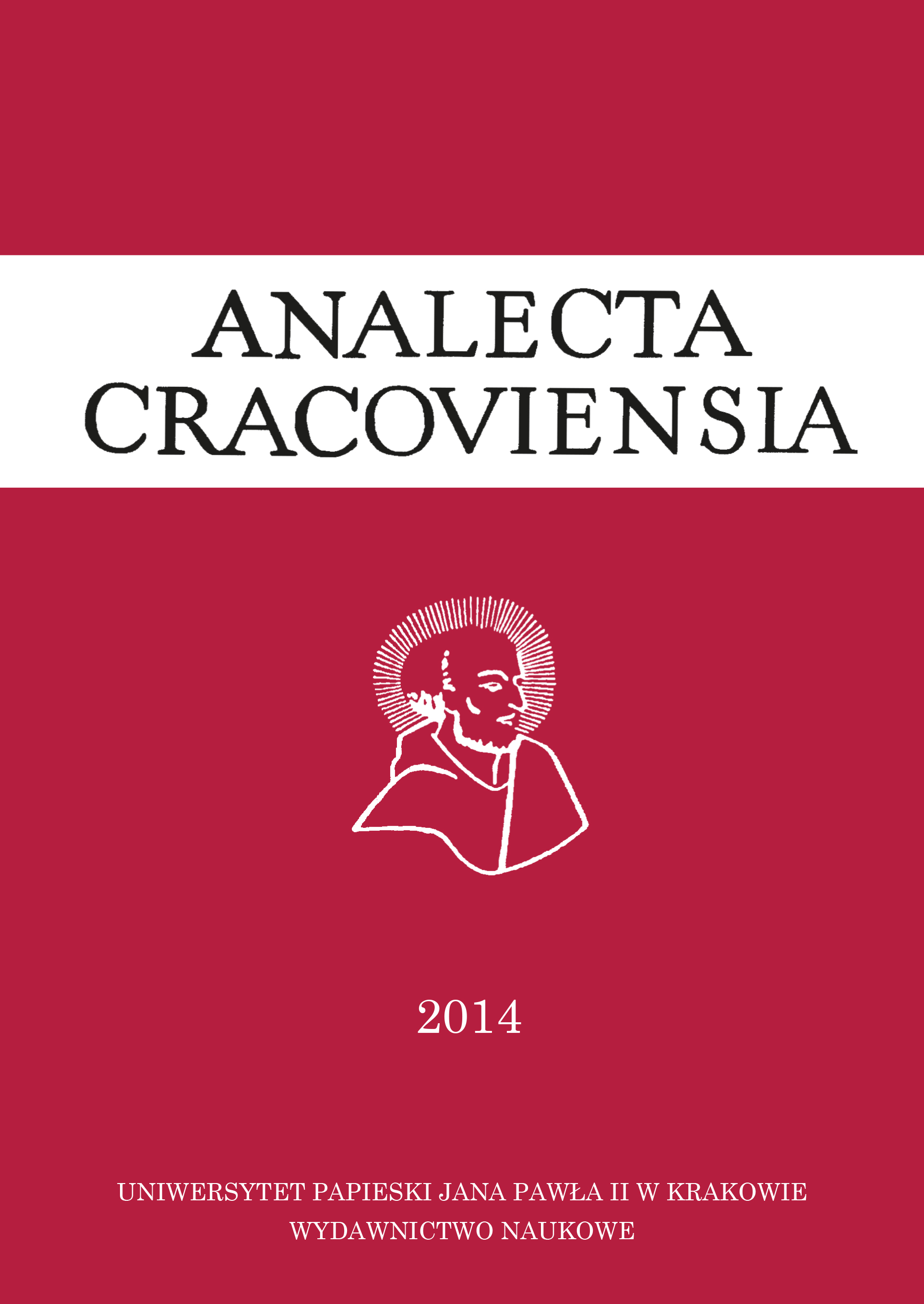Does a legislator need imagination?
DOI:
https://doi.org/10.15633/acr.968Keywords:
imagination, legislation, law, law drafting, legislator, legal theoryAbstract
The aim of the paper is to present the role and tasks of imagination in legislation. The author focuses on the following realms of legislation action: legitimacy of enacting a new law, variants of possible interpretations of law, acceptance of law by the addressees of law, and the results of entering the law into force. The conclusion is as follows: a good legislator is a realist with a proper dose of imagination.
References
Bator A., Gromski W., Kozak A., Kaźmierczyk S., Pulka Z., Wprowadzenie do nauk prawnych. Leksykon tematyczny, red. A. Bator, Warszawa 2010.
Bentham J., An introduction to the principles of morals and legislation, vol. II, London 1823.
Gerosa L., Interpretacja prawa w Kościele. Zasady, wzorce, perspektywy, przeł. K. Kubiś, A. Porębski, Kraków 2003, s. 151.
Joannes PP. XXIII, Constitutio apostolica Veterum sapientia, 22.02.1962, „Acta Apostolice Sedis” 54 (1962), s. 129–135.
Kroczek P., „Funkcja prawa” jako skutek wprowadzenia do systemu prawnego normy prawnej, „Annales Canonici” 2008 nr 4, s. 173–180.
Kroczek P., Co prawodawca miał na myśli – czyli czym jest „mens legislatoris” i gdzie jej szukać?, „Annales Canonici” 2007 nr 3, s. 187–198.
Kroczek P., Niedookreśloność i nieostrość zwrotów w prawie kanonicznym na przykładzie KPK z 1983 r., „Annales Canonici” 2005 nr 1, s. 175–185.
Kroczek P., The art of legislation: the principles of lawgiving in the Church, Kraków 2011.
Mill J. S., Considerations on representative government, New York 1867.
Morawski L., Teoria prawodawcy racjonalnego, „Państwo i Prawo” 2000 nr 11, s. 29–38.
Olechowska K., Reforma procesu stanowienia prawa – omówienie dyskusji, [w:] Reforma procesu stanowienia prawa, „Zeszyty BRE Bank – CASE” 2004 nr 72, s. 82.
Örsy L., Theology and canon law: new horizons for legislation and interpretation, Collegeville 1992.
Podgórecki A., Socjologia prawa, Warszawa 1962.
Provost J. H., Some rules of governance, [w:] Code, community, ministry. Selected studies for the parish minister introducing the Code of Canon Law, ed. E. G. Pfnausch, Washington 1992, s. 21–23.
Redelbach A., Wronkowska S., Ziembiński Z., Zarys teorii państwa i prawa, Warszawa 1992.
Rozporządzenie Prezesa Rady Ministrów z dnia 20 czerwca 2002 r. w sprawie Zasad techniki prawodawczej (Dz.U. Nr 100, poz. 908).
Sobański R., Nauki podstawowe prawa kanonicznego, t. 1: Teoria prawa kanonicznego, Warszawa 2001.
Sobański R., Nauki podstawowe prawa kanonicznego, t. 2: Teologia prawa kościelnego, Warszawa 2001.
Ustawa z dnia 28 lipca 1983 r. o podatku od spadków i darowizn (Dz.U. Nr 45, poz. 207 z późn. zm.).
Waltoś S., Sztuka legislacji – w hołdzie Juliuszowi Makarewiczowi, [w:] Karno-polityczne koncepcje Profesora Juliusza Makarewicza. W 50. rocznicę śmierci, red. I. Nowikowski, P. Strzelec, Lublin 2006, s. 13–27.
Wronkowska S., Podstawowe pojęcia prawa i prawoznawstwa, Poznań 2005.
Wronkowska S., The rational legislator as a model for the real lawmaker, [w:] Polish contributions to the theory and philosophy of law, ed. Z. Ziembiński, Amsterdam 1987, s. 147–163.
Wronkowska S., Zieliński M., Komentarz do zasad techniki prawodawczej, Warszawa 2004, s. 30.
Wronkowska S., Ziembiński Z., Zarys teorii prawa, Poznań 1997.
Wyrok Trybunału Konstytucyjnego z dnia 15 stycznia 2007 r., P 19/06, Legalis nr 79514.
Wyrok Trybunału Konstytucyjnego z dnia 6 marca 2007 r., P 45/06, Legalis nr 80541.
Zieliński M., Wykładnia prawa. Zasady. Reguły. Wskazówki, Warszawa 2002.
Downloads
Published
Issue
Section
License
Copyright (c) 2015 Piotr Kroczek

This work is licensed under a Creative Commons Attribution-NonCommercial-NoDerivatives 3.0 Unported License.
Authors who publish with this journal agree to the following terms:
- Authors retain the copyright and full publishing rights without restrictions, and grant the journal right of first publication with the work simultaneously licensed under a Creative Commons Attribution 4.0 International License that allows others to share the work with an acknowledgement of the work's authorship and initial publication in this journal.
- Authors are able to enter into separate, additional contractual arrangements for the non-exclusive distribution of the journal's published version of the work (e.g., post it to an institutional repository or publish it in a book), with an acknowledgement of its initial publication in this journal.
- Authors are permitted and encouraged to post their work online (e.g., in institutional repositories or on their website) prior to and during the submission process, as it can lead to productive exchanges, as well as earlier and greater citation of published work (See The Effect of Open Access).

